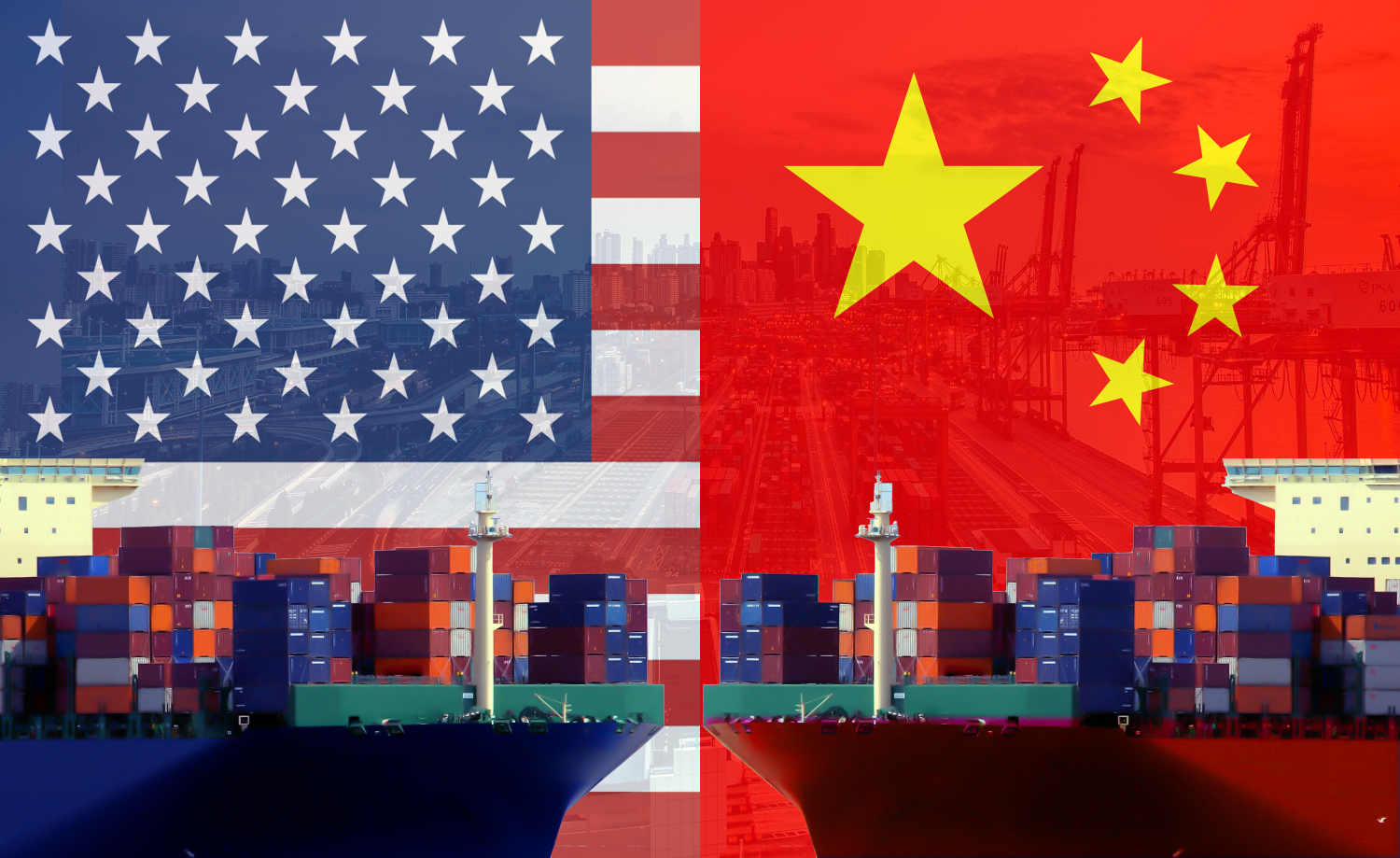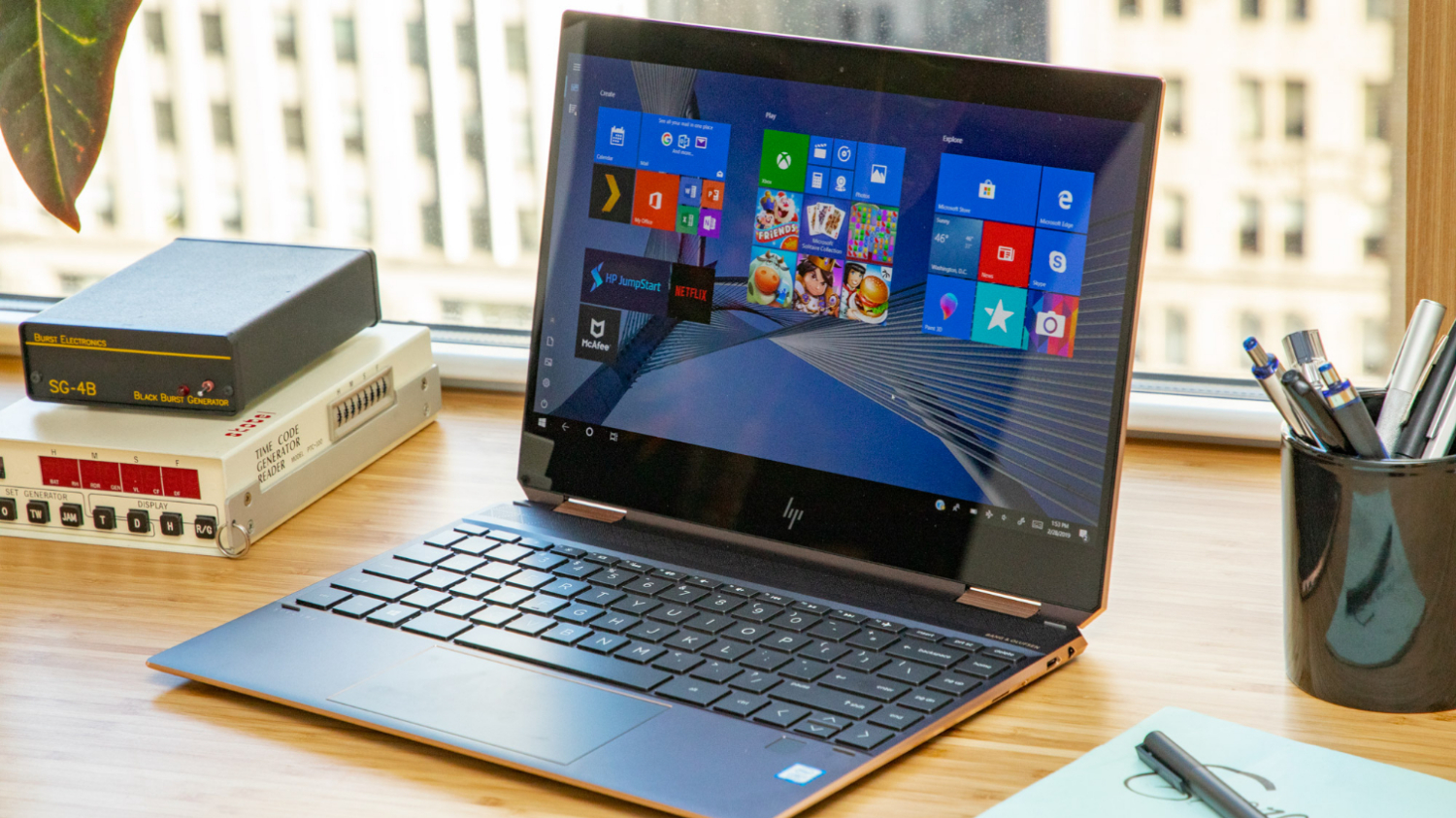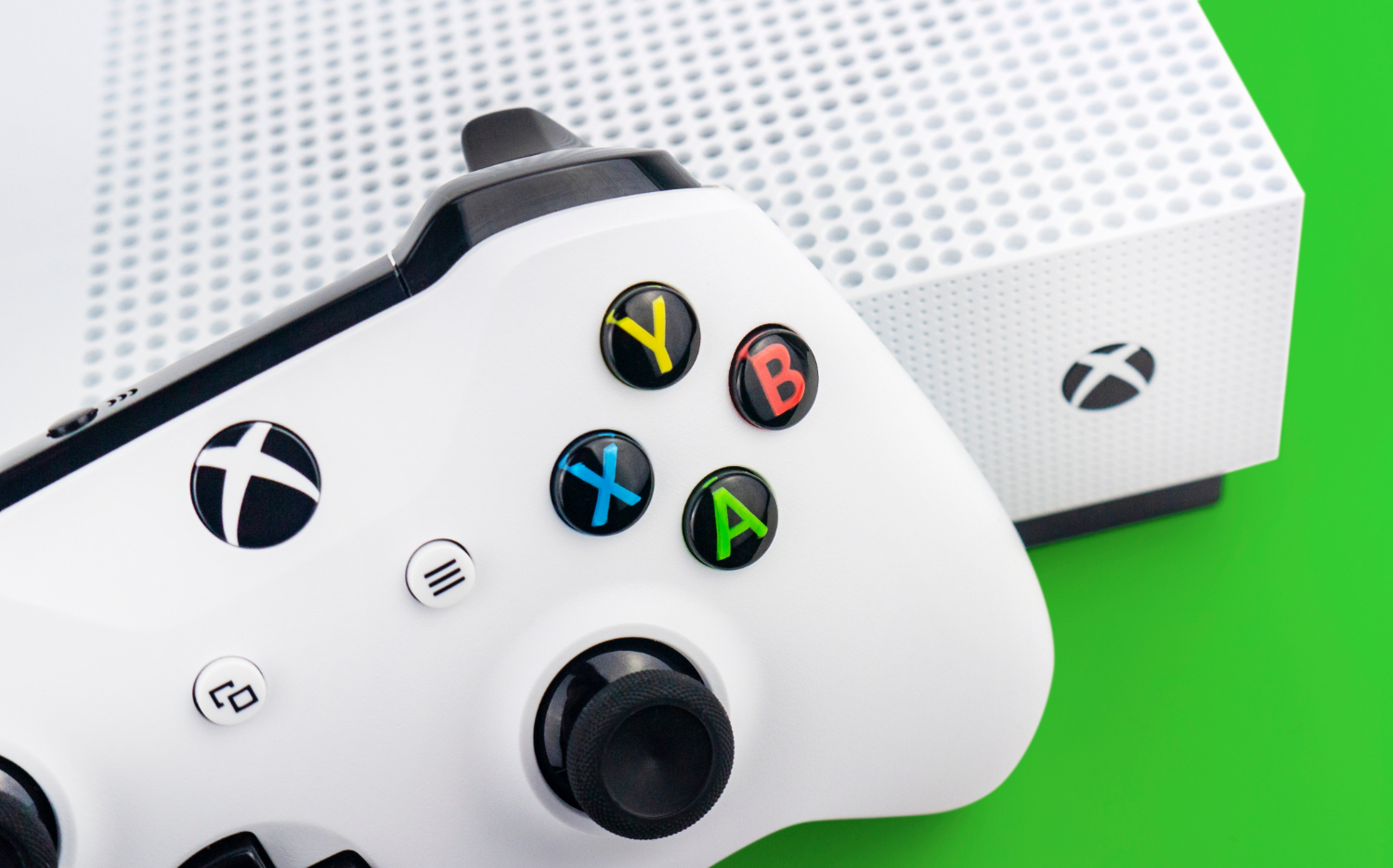Trump's Tariffs and Tech: Everything You Need to Know (Update: Some Postponed Indefinitely)
President Donald Trump and his administration’s proposed expansion of tariffs of 25 percent onto roughly $300 billion worth of imports from China has caused the tech industry to respond. The latest round of tariffs may include a number of tech items, including laptops, tablets, headphones, keyboards, solid state drives and more. Now a deal has been made, though, which could delay some tariffs indefinitely.
Several technology companies, vendors and retailers made their thoughts known in public comments to the Office of the United States Trade Representative (USTR). That was during a period of public hearings that took place from June 17 through June 25. But the tariffs have been delayed several times. The USTR announced in August that some of the the tariffs, including many on tech which were planned for September, had previously been delayed until December 15.
Trump announced new tariffs on Twitter, but at 10 percent, on the new goods. This was after he briefly suspended the tariffs after beginning new talks with Chinese leader Xi Jinping. After China threatened to retaliate, Trump bumped current tariffs from 25% to 30% and upcoming tariffs in December from 10 to 15%.
Here’s what we know about the tariffs so far:
Delayed to December 15, then an Indefinite Delay
In a statement on August 13, the USTR said that for "certain articles" will see delays until Dec. 15, including "cell phones, laptop computers, video game consoles, certain toys, computer monitors, and certain items of footwear and clothing."
But on December 13, the Wall Street Journal reported that the two sides were coming to a limited trade deal. That calls for China to purchase $50 billion worth of agricultural goods in 2020, as well as "energy and other goods." In return, the U.S. may reduce rates on existing imports and cancel the tariffs that were meant to go into place on Dec. 15, which include many tech products.
Some of those were delayed following the Phase One deal.
Get Tom's Hardware's best news and in-depth reviews, straight to your inbox.
What gadgets do the tariffs affect?
The tariffs are wide-ranging and affect many industries, including technology, agriculture, clothing and metals. There are hundreds of product categories listed on the website for the Harmonized Tariff System (HTS) of the United States. You can read the full list of the latest round of tariffs here.
| HTS Subheading | Description | This could affect... |
| 8471.30.01 | Portable automatic data processing machines, not over 10 kg, consisting at least a central processing unit, keyboard and display. | Laptops, tablets |
| 8471.49.00 | ADP machines, nesoi, entered as a system (consisting of a central processing unit, an input unit, and an output unit). | Desktops, All-in-ones |
| 8471.60.20 | Keyboards for automatic data processing machines not entered with the rest of a system. | Keyboards |
| 8507.60.00 | Lithium-ion batteries. | Batteries, external batteries, battery cases |
| 8517.12.00 | Telephones for cellular networks or for other wireless networks. | Smartphones |
| 8517.62.0090 | Machines for the reception, conversion and transmission or regeneration of voice, images or other data, nesoi. | Routers, NAS devices, smart speakers, smartwatches |
| 8517.70.00 | Parts of telephone sets; parts of other apparatus for the transmission or reception of voice, images or other data, including apparatus for. | Repair parts, especially for smartphones |
| 8518.30.20 | Headphones, earphones and combined microphone/speaker sets, other than telephone handsets. | Wired headphones and headsets |
| 8523.51.00 | Semiconductor media, solid state non-volatile storage devices. | Flash memory, solid state drives, USB sticks, SD cards |
| 8528.52.00 | Other monitors capable of directly connecting to and designed for use with an automatic data processing machine of heading 8471. | Flat-panel monitors |
| 8528.72.64 | Color television reception apparatus w/flat panel screen, video display diagonal over 34.29 cm, incorporating a VCR or player. | Flat-panel televisions |
| 9504.50.00 | Video game consoles and machines, other than those of heading 9504.30. | Video game consoles |
Other technologies, including discs, batteries, cameras and projectors also appear on the list in various forms. And, CPU fans, processors (8542.30.01) are also scheduled.
How has China reacted?
In August, China threatened to place tariffs on $75 billion in U.S. goods in Trump follows through on his threats to China. The plan includes tariffs of 5 or 10% on a American products, including oil, agricultural products, automobiles and more. The tariffs are scheduled to start the same days as the U.S. ones - Sept. 10 and Dec. 15.
Following this, Trump said he would raise tariffs on $250 billion of goods to 30% from 25%. New tariffs on $300 billion worth of goods in and December will move from 10% to 15%.
On October 11, the U.S. and China struck a "phase one deal" that eliminates October tariffs. December tariffs, which may affect consumer electronics, are still under discussion.
On Dec. 13, a limited deal was reported, which could potentially lead to the elimination of those tariffs altogether.
But a "Phase One" trade deal in December put an indefinite delay on some of those tariffs. Per Reuters, tariffs on laptops and cellphones won't go into place. The Entertainment Software Association told Polygon that the tariffs also won't affect video game consoles.
What do tech companies think?
A number of tech companies have commented on the tariffs publicly, and they all have expressed a wish for, unsurprisingly, categories affecting their businesses to be removed from the list.
Companies that have commented include:
- Apple
- Bose
- Best Buy
- Dell
- Fitbit
- Fujifilm
- HP
- Intel
- Kingston Technology
- Microsoft
- Nintendo of America
- Sony Interactive Entertainment
- Zenimax Media
Two notable joint comments have also been written. The first was one from Intel, HP, Dell and Microsoft regarding laptops while another came from Nintendo of America, Microsoft and Sony Interactive Entertainment about the effects on video game consoles.
All of the comments have some commonalities. Many mention the costs of moving existing supply chains out of China to either the United States or other countries in Asia. Additionally, they point out that companies that do not serve the United States as a primary customer base could gain a competitive advantage, as well as brands outside of the United States. (Fitbit, for example, suggested Xiaomi and Huawei would be strengthened as it was affected.)
Additionally, many mention thin margins and the possibility of pushing costs to consumers, especially on low-end, low-priced electronics.
What does this mean for prices?
The Consumer Technology Association, a group representing technology companies, commissioned a study suggesting that the U.S. price of cell phones would rise 14%, video game consoles and laptops would each increase 19%. The price of drones would jump 15%.
In its own public comment, the Entertainment Software Association, which represents the video game industry, wrote that: “the imposition of a 10% tariff rate could place these products out of reach for many consumers – let alone a 25% tariff, which would have an even greater impact, likely causing consumers to purchase fewer consoles, controllers and accessories. This is because console makers will be unable to absorb the tariffs.
Many of these companies suggested prices could go up in their own comments, insisting that they wouldn’t be able to handle the costs.
Why is the government considering implementing tariffs?
In August of 2017, the USTR began investigating the practices of the Chinese government. The investigation included policies and action regarding intellectual property, technology transfer and more.
The USTR and the office of President Donald Trump have deemed China’s policies as restricting commerce in the United States and “unreasonable or discriminatory.”
Due to that, they deemed China’s policies fall under section 301(b) of the Trade Act of 1974, which authorizes the President to take such action.
Update: Jan 27, 2:32 p.m. ET with news that the U.S. and and China have reached a "Phase 1" trade deal, which delays tariffs on phones, laptops and consoles, among other things.

Andrew E. Freedman is a senior editor at Tom's Hardware focusing on laptops, desktops and gaming. He also keeps up with the latest news. A lover of all things gaming and tech, his previous work has shown up in Tom's Guide, Laptop Mag, Kotaku, PCMag and Complex, among others. Follow him on Threads @FreedmanAE and BlueSky @andrewfreedman.net. You can send him tips on Signal: andrewfreedman.01
-
Gurg So US government gets $75 B in tariff revenue but consumers only pay between $45 B to $57 B in increased prices for these luxury goods. The increased prices should go away once those Commie loving manufacturers can move their production back to US or to other friendly countries that treat the US fairly and have non-slave labor. Sounds like a tremendous deal for the US and our economy as $75 >($45 to 57).Reply -
Lutedogg1 Good, I'm tired of buying slave labor products from Communist China where they put up nets at Foxconn factories to prevent workers from jumping to death and commit suicide. Their products should have been tariffed a long time ago. They can build automated facilities in the US. It will help our economy and stop slave labor. I don't care if I have to pay more for a couple years and wait for the transition. Hello $35 hourly jobs in America. The monopoly tech giants will make more money when there is actually a middle class in America again. Foxconn said they were going to automate slave labor jobs because they cost too much in China.....pathetic....https://www.bbc.com/news/technology-36376966 ....ohhh....they did it already.Reply -
mihen This was a very well written and neutral article. It didn't take any biased stance for or against the tariffs, just breaking down the facts.Reply
Personally, I don't think these tariffs will last long. Given the situation in Hong Kong, China can't afford this trade war. -
tomspown I hope the taxing stays in the USA and does not affect EU in any way, this way USA prices will match our prices here in EU. We wont have to feel bad about over paying for pcReply
hardware. -
ElectrO_90 Reply
yes, like the US Prison Service does NOT employ slave labor...and force people to work for 5 cents an hourGurg said:other friendly countries that treat the US fairly and have non-slave labor. -
bit_user I have all kinds of questions about how the tax is actually applied.Reply
For instance, if a SSD is assembled in China using chips form Korea, does the tariff apply to the entire unit?
Likewise, if memory chips from China are exported to Vietnam for assembly of the DIMM, does the entire DIMM skirt the tariffs?
What if the merchandise just transits through another country, maybe getting repackaged along the way?It seems to me that what they want is a value-added tax, though I doubt that's actually how it's implemented. -
BiggWigg92 Reply
Except those in America already strapped for cash will struggle more due to the price increase on many common items, even razors orally most anything mass produced.Gurg said:So US government gets $75 B in tariff revenue but consumers only pay between $45 B to $57 B in increased prices for these luxury goods. The increased prices should go away once those Commie loving manufacturers can move their production back to US or to other friendly countries that treat the US fairly and have non-slave labor. Sounds like a tremendous deal for the US and our economy as $75 >($45 to 57). -
ElectrO_90 Reply
I love how its always these big corporations that are in trouble, even if they do make $30bn profit or more a year, it's the PEOPLE who have to suffer, not the corporation who could easily absorb the increase. But you know, they have to blame everyone else apart from Corporate Greed.BiggWigg92 said:Except those in America already strapped for cash will struggle more due to the price increase on many common items, even razors orally most anything mass produced. -
bit_user Reply
Yes, corporations are greedy. That's sort of the point of them. If their management fails to maximize profit, they get fired and new executives are brought in.ElectrO_90 said:I love how its always these big corporations that are in trouble, even if they do make $30bn profit or more a year, it's the PEOPLE who have to suffer, not the corporation who could easily absorb the increase. But you know, they have to blame everyone else apart from Corporate Greed.
So, then perhaps we should shift the blame to the investors. Wouldn't you want the biggest return on your investment? If you were going to take a smaller return, how would you know that it was worthwhile? Profitability is the easiest thing to measure, while "social good" or "being nice to consumers" is much harder to quantify. So, even for investors who aren't so greedy, the easiest thing to do is still just to look at the balance sheet.
What I want to know is what's your solution? -
ElectrO_90 People always have the power if they want and can avoid buying items and products. It has worked in the past.Reply
The solution is to tax everything fairly and remove loop holes from tax evasion.
Setting prices rather than % as tax, more open accountancy in more detail.
Who gets paid what and where the money goes.
People who buy products should know who owns that product and which companies are involved and cost of production vs profit should be open, and seperate for information on how much was invested into that item to be produced (research)
An open book is the way to go forward.
I think Mass Profit over peoples lives should be allowed either. For instance, Toys'r'us was a profit making company, got stripped, then sold off and thousands of families lost their income and lives while a few made horrendous profits. This is where Capitalism fails because laws are made so shareholders get more money.
Multitude of laws can prevent greed. For instance, workers in a company can hold 10-15% of the companies shares among the workers, so when the company makes a profit the people who made the profit for the company also benefit. As well as having that amount of shares means they get a decision on the board as well.
The issue cannot be sorted in a post, but there are farer ways of doing things.
Personally, I try to avoid anything owned by Nestle, because they are an atrocious company with their less than legal practices and problems they have caused around the world. But also knowing which other companies are owned by Nestle is a mine field.


